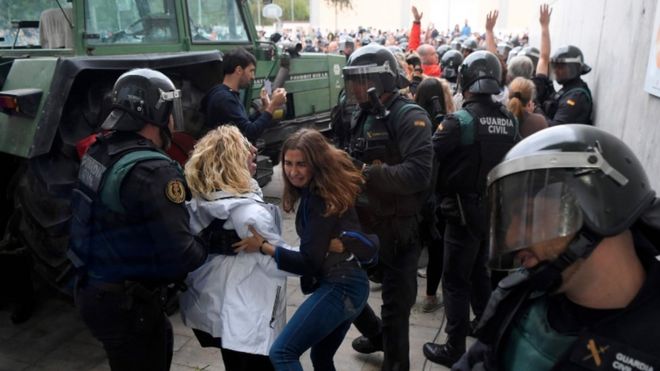 AFP
AFP
Catalonia's independence referendum has begun in chaotic fashion, with police attempting to prevent the vote from taking place.
The Spanish government has pledged to stop a vote that was declared illegal by the country's constitutional court.
The interior ministry says police officers began seizing ballot papers and boxes as the polls opened.
Riot police blocked potential voters from entering a polling station in the regional capital Barcelona.
How is the day unfolding?
Thousands of separatist supporters occupied schools and other buildings that have been designated as voting centres ahead of the polls opening.
Many of those inside are parents and their children, who remained in the buildings after the end of lessons on Friday and bedded down in sleeping bags on gym mats.
In some areas, farmers positioned tractors on roads and in front of polling station doors, and school gates were taken away to make it harder for the authorities to seal buildings off.
Police insisted polling stations would not be allowed to open, and that those inside would be evicted.
In the early hours of Sunday morning, dozens of national police vehicles left their base in the port of Barcelona as officers were deployed.
Referendum organisers have called for peaceful resistance to any police action.
Catalan government officials have predicted a big turnout.
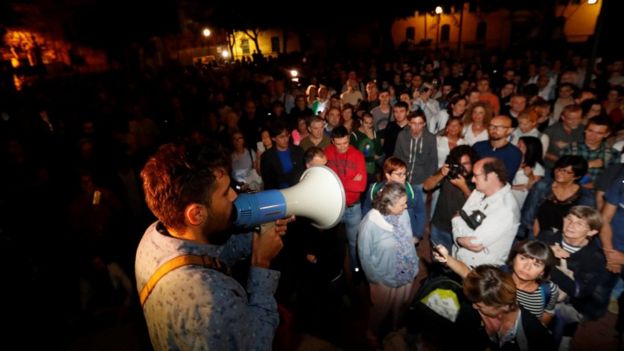 REUTERS
REUTERS
The ballot papers contain just one question: "Do you want Catalonia to become an independent state in the form of a republic?" There are two boxes: Yes or No.
Ahead of the polls opening, the Catalan government said voters could use any polling station if their designated voting place was shut.
Sunday would be an "important date for democracy", regional Vice-President Oriol Junqueras told TV3, the main Catalan public channel.
Will the vote be credible?
The referendum has been declared illegal by Spain's constitutional court, and thousands of extra police officers have been sent to the region.
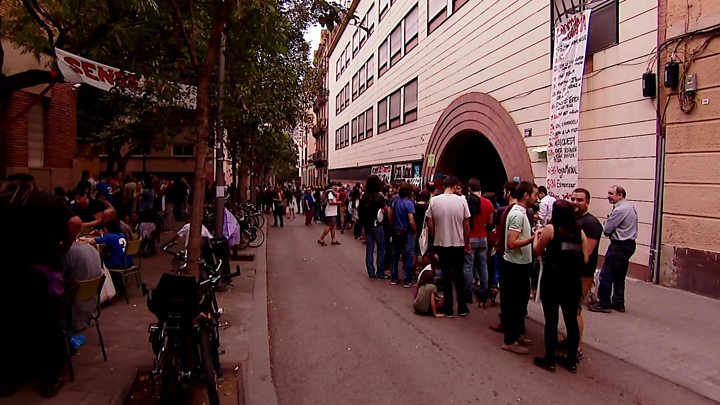
The Madrid government has put policing in Catalonia under central control and ordered the regional force, the Mossos d'Esquadra, to help enforce the ban.
In a show of force ahead of the poll, Spanish authorities have seized voting materials, imposed fines on top Catalan officials and temporarily detained dozens of politicians.
Police have also occupied the regional government's telecommunications centre.
The head of the Catalan police has urged officers to avoid using force.
Why is a vote being held?
Catalonia, a wealthy region of 7.5 million people in north-eastern Spain, has its own language and culture.
It also has a high degree of autonomy, but is not recognised as a separate nation under the Spanish constitution.
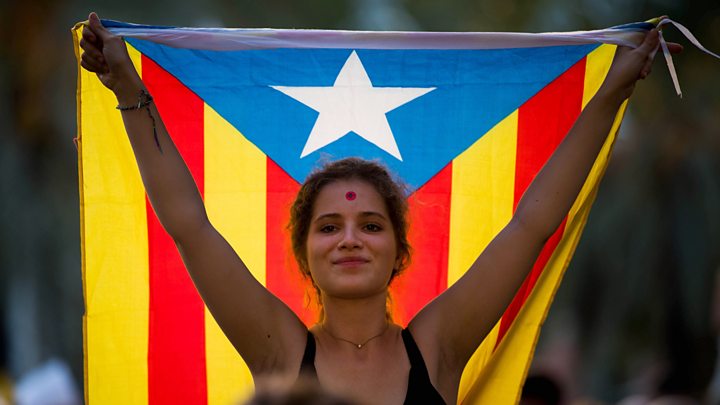
Pressure for a vote on self-determination has grown over the past five years.
But Spanish unionists argue Catalonia already enjoys broad autonomy within Spain, along with other regions like the Basque Country and Galicia.
Why is Madrid so opposed?
Spanish Prime Minister Mariano Rajoy says the vote goes against the constitution, which refers to "the indissoluble unity of the Spanish nation, the common and indivisible homeland of all Spaniards".
Central government spokesman Iñigo Mendez de Vigo accused the Catalan government of being inflexible and one-sided, but it is a charge that Catalan nationalists throw back at Madrid itself.
Catalonia in numbers
- 16% of Spain's population live in Catalonia
- 25.6% of Spain's exports come from Catalonia
- 19% of Spain's GDP is produced in Catalonia
- 20.7% of foreign investment in Spain goes to Catalonia
- 35.3% of Catalonia's GDP is debt
Getty
Demonstrations by independence campaigners have been largely peaceful.
"I don't believe there will be anyone who will use violence or who will want to provoke violence that will tarnish the irreproachable image of the Catalan independence movement as pacifist," Catalan leader Carles Puigdemont said.
On the eve of the vote, thousands of demonstrators calling for Spanish unity held rallies in cities across Spain, including in the Catalan capital Barcelona.
They waved Spanish flags and carried banners reading "Catalonia is Spain".
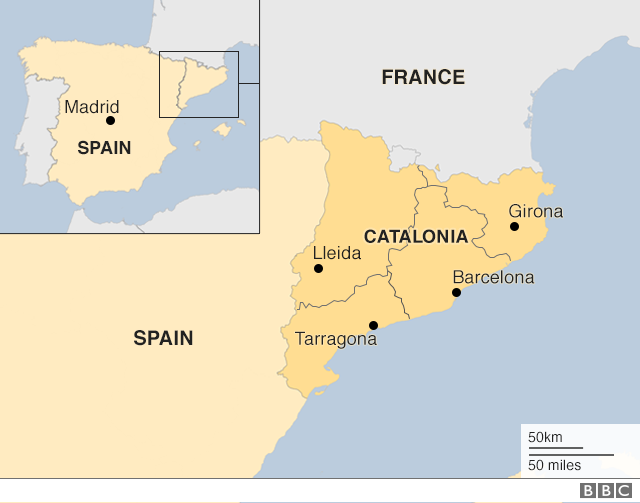

No comments:
Post a Comment